2023 Workshops and Preconferences
July 14-15, 2023
In-person in Amsterdam, Netherlands
AAIC 2023 offers a variety of educational events before the main conference begins. These workshops and preconferences, provide an added opportunity to explore the most up-to-date basic science and the newest findings and practices for the prevention and treatment of Alzheimer's disease and other dementias.
ISTAART Immersives are open to all AAIC attendees, regardless of membership status.
On This Page:
- Enabling Precision Medicine for Alzheimer’s Disease Through Open Science
- Analytic Approaches for Neuropsychiatric Symptom Scales
- Getting Started with Neuroimaging Analysis
- Assessing and Addressing Hearing, Vision and Olfaction in Individuals with Cognitive Impairment
- The Basics of Fluid Biomarkers in Alzheimer's Disease
- Introduction to Advanced Models for Repeated Measures of Continuous Outcomes Including Cognition Using R Studio
- ADSP Phenotype Harmonization Consortium: Data Access and Application
- Cognitive Assessment in Low- and Middle-Income Countries
- Explore AD Data and Resources Using the AD Knowledge Portal Ecosystem
- Evaluating the Human Vasculature for VCID
- Alzheimer’s Imaging Consortium
- ISTAART PIA Day
- Technology and Dementia
Thursday, July 13
Friday, July 14
Saturday, July 15
Thursday, July 13
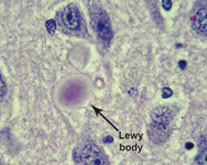
NIA-AA Symposium: Enabling Precision Medicine for Alzheimer’s Disease Through Open Science
Thursday, July 13: 1 – 5 p.m.
Friday, July 14: 8 a.m. – noon
Novotel
View the agenda
The 6th annual NIA-AA Symposium on Enabling Precision Medicine for Alzheimer’s Disease Through Open Science will feature an array of NIA-supported translational research programs that employ precision medicine principles and open-science practices to:
- Understand the complex and heterogeneous etiology of Alzheimer’s and AD-related dementias.
- Identify and validate new disease-relevant targets and biomarkers.
- Develop the next generation animal models for AD.
- Advance novel targets into drug discovery.
Friday, July 14

ISTAART Immersives: Analytic Approaches for Neuropsychiatric Symptom Scales
Friday, July 14: 8 a.m. – noon
Hilton
View the agenda
This workshop will review commonly-used neuropsychiatric scales and statistical approaches for analysis. Examples from different AD datasets will be used to demonstrate these methods. This workshop will enhance the statistical rigor used in analyzing neuropsychiatric data in neurocognitive disorders. By providing practical examples from known AD datasets, attendees will gain the knowledge and skills needed to understand the distributions of their datasets and how to apply correct statistical techniques.
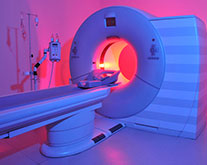
ISTAART Immersives: Getting Started with Neuroimaging Analysis
Friday, July 14: 8 a.m. – noon
Hilton
View the agenda
This hands-on session will provide practical information and an enhanced understanding on how to work with and analyze medical imaging data from various magnetic resonance imaging (MRI) modalities, as well as positron emission tomography (PET) data. The workshop will focus on understanding the basic structure of imaging data, how to traverse images, data extraction and how voxels relate to world coordinates. The session will then go through the basic processing steps involving structural MRI data, demonstrating simple workflows including tissue segmentation, registration and pre-processing steps of fMRI or DTI. Participants will gain an understanding of how to start processing and analyzing various imaging modalities used in dementia research.

ISTAART Immersives: Assessing and Addressing Hearing, Vision and Olfaction in Individuals with Cognitive Impairment
Friday, July 14: 8 a.m. – noon
Hilton
View the agenda
This workshop will provide an introduction to hearing and vision impairment in individuals with cognitive impairment, including data and perspectives from high-income to low- and middle-income countries. This session will provide training in the assessment of hearing, vision and olfaction in individuals with cognitive impairment, and incorporate hands-on assessment of cognitive function in individuals with hearing and vision impairment. The session is designed for researchers (junior to senior), as well as clinicians and staff working in either research or clinical settings. Attendees will gain information on how to incorporate hearing and vision assessments into routine practice in a clinical or research setting and how to optimize cognitive testing for the hearing and vision needs of individuals with cognitive impairment.
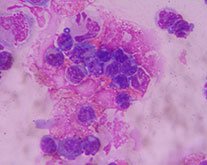
ISTAART Immersives: The Basics of Fluid Biomarkers in Alzheimer's Disease
Friday, July 14: 8 a.m. – 5 p.m.
Hilton
View the agenda
The fluid biomarkers field for Alzheimer’s disease, and other dementias is rapidly expanding. This workshop aims to provide participants with an in-depth understanding of the fundamental principles, inherent limitations, and clinical and research applications of the most common AD biomarkers present in cerebrospinal fluid (CSF) and blood. This workshop will include fundamental laboratory-focused sessions that capture the basics of neurochemistry, sample pre-analytics, assay methods and development, quality control, and regulatory considerations. It will also incorporate clinical practice-focused sessions that cover considerations for AD fluid biomarker implementation, the context of use, disclosure and the gaps and opportunities in this field. These sessions will cover both standard AD biomarkers and emerging biomarkers and novel platforms in development.

ISTAART Immersives: Introduction to Advanced Models for Repeated Measures of Continuous Outcomes Including Cognition Using R Studio
Friday, July 14: 8 a.m. – 5 p.m.
Hilton
View the agenda
This course’s primary goal is to provide researchers and health professionals with a practical review of advanced analytical methods commonly used in scientific articles to model change of continuous outcomes (i.e., cognitive scores, some measure of physical function) over time. This applied workshop will use real data examples to review advanced modern methods to evaluate change in cognition over time. Each module will discuss the concepts and analytical models, their limitations, and data requirements. It will also include a demonstration of code and output interpretation.
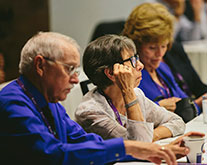
ISTAART Immersives: ADSP Phenotype Harmonization Consortium: Data Access and Application
Friday, July 14: 1 – 5 p.m.
Hilton
View the agenda
The first data freeze for the Alzheimer’s Disease Sequencing Project Phenotype Harmonization Consortium (ADSP-PHC) was released in 2022. The project's scope includes longitudinal harmonization for neuroimaging, cognitive, biomarker and neuropathology data across the many cohort studies of aging included in the ADSP. This workshop will provide attendees with a didactic explaining how data are harmonized with three domain examples, followed by a thorough presentation on the wealth of data being released, including a walkthrough on accessing harmonized data. An in-depth exploration of the cognitive data with a hands-on application of longitudinal cognitive phenotypes will be facilitated by leaders in the field to allow participants to analyze data from one of the cohorts.

ISTAART Immersives: Cognitive Assessment in Low- and Middle-Income Countries
Friday, July 14: 1 – 5 p.m.
Hilton
View the agenda
This is an interactive workshop for clinicians and researchers from low- and middle-income countries (LMICs) who evaluate patients with cognitive complaints in their clinic, do epidemiological research or recruit persons with dementia into clinical trials. One of the most important barriers to dementia care and research, highlighted by researchers in LMICs, is the lack of suitable cognitive tools. This workshop will cover principles of cognitive testing, including validation, adaptation and sensitivity and specificity. Participants will learn about a global cognitive computerized battery and a new test for spatial cognition. The workshop will also introduce a memory test specifically developed by researchers from LMICs.
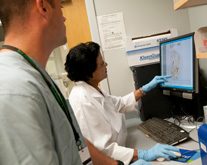
NIA-AA Workshop: Explore AD Data and Resources Using the AD Knowledge Portal Ecosystem
Friday, July 14: 1 – 5 p.m.
Novotel
View the agenda
Join us for an immersion workshop that will introduce the AD Knowledge Portal and Agora, two sites for exploring multi-omic data and results for Alzheimer’s disease. The workshop will provide an overview of the AD Knowledge Portal infrastructure, how to find data of interest, and how to download and prepare data for downstream analyses. We will also present an overview of three complementary results explorers: Agora, AD Atlas, and Model AD Explorer.
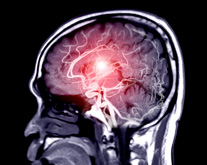
ISTAART Immersives: Evaluating the Human Vasculature for VCID
Friday, July 14: 1 – 5 p.m.
Hilton
View the agenda
Vascular contributions to cognitive impairment and dementia (VCID) may occur due to vascular and genetic risk factors, biological insults, lifestyle choices and environmental confounds that challenge and ultimately negatively impact brain functions. This workshop provides attendees an introduction to the anatomy of the neurovasculature and what is known about VCID. Next, there will be opportunities for immersive, hands-on training on how to zonate vascular cells after single-cell RNA sequencing, model brain microflow, clear whole organs, label and image vasculature, and perform the latest VCID-related neuroimaging protocols and analyses. The session will also identify methodological gaps in the VCID field and potential ways to address them.
Saturday, July 15
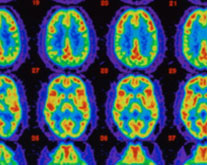
Alzheimer’s Imaging Consortium (AIC)
Saturday, July 15: 8 a.m. – 5 p.m.
RAI Convention Center
View the agenda
The Alzheimer’s Imaging Consortium (AIC) will focus on the frontiers of neuroimaging of Alzheimer’s and other dementia. The program will focus on new tools and methods, how neuroimaging can drive new discoveries in the disease, as well as clinical applications and implications. The program consists of invited speakers, oral and poster presentations from submitted abstracts, a debate, and a panel discussion. There will be a large emphasis on interactive Q&A sessions and opportunities for early-career researchers throughout the scientific program. A reception will follow for registered attendees.
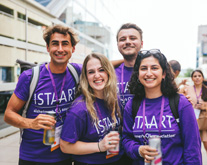
ISTAART Professional Interest Area (PIA) Day
Saturday, July 15: 8 a.m. – 5 p.m.
Okura Hotel
View the agenda
Join ISTAART Professional Interest Areas (PIAs) for targeted scientific sessions and exclusive networking opportunities. PIA Day is only open to current or new ISTAART members. Learn about ISTAART benefits and how to join.

Technology and Dementia
Saturday, July 15: 9:30 a.m. – 5 p.m.
Hilton
View the agenda
Technology and Dementia will convene researchers and members of the industry interested in technology research and development, including mobile technology, home-based technology and social networking. Sessions explore various types of technologies as tools to support innovative study design in research and as interventions for persons living with dementia and their care partners. The program consists of invited speakers, as well as oral and poster presentations from submitted abstracts.
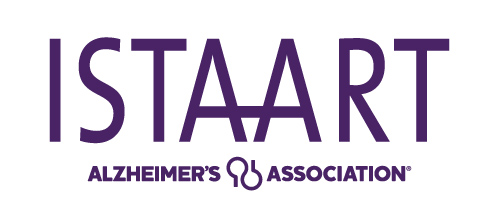
Advance Your Career
Join ISTAART, an inclusive global network of scientists, clinicians and dementia professionals. With newly discounted rates and free memberships for students, it’s easier than ever to become a part of ISTAART.
We use cookies to improve your experience on this website. Learn about options for managing your personal data in our Privacy Policy.
lg > 992px
md > 768px
sm < 767px
xs
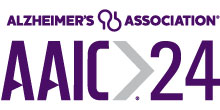
Join the Conversation #AAIC24